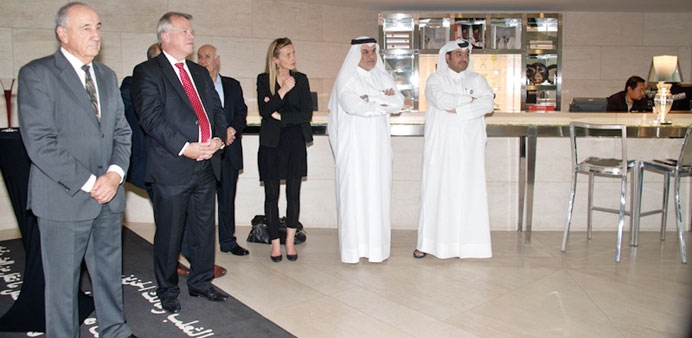|
The Qatar-Sudan Archaeological Project, affiliated to the Qatar Museums Authority (QMA), recently organised a ceremony in the Museum of Islamic Art to honour Charles Bonnet, a renowned Swiss archaeologist. |
The function was held on the occasion of Bonnet’s 50th year of work in Sudan, through which he was exploring the country’s ancient civilisations.
The Qatar-Sudan Archaeological Project includes excavation and restoration work, as well as preservation of Sudan’s archaeological heritage, in addition to training sessions by international archaeology professionals for young archaeologists in Sudan and Qatar.
HE Sheikh Hassan bin Mohamed al-Thani, QMA vice chairman and president of the Qatar-Sudan Archaeological Project’s joint committee, attended the ceremony and welcomed Bonnet to Qatar.
Sheikh Hassan, in his speech, valued Bonnet’s efforts in uncovering the great civilisations in Sudan and lauded his role as a member of the project’s scientific committee.
Abdullah al-Najjar, CEO of the Qatar-Sudan Archaeological Project, stressed on the importance of honouring Bonnet and explained that the project is considered the first of its kind in the history of archaeology.
“We seek through this project to highlight Qatar’s interest in developing and preserving the great heritage of this part of the Arab world.”
Present at the honouring ceremony were a number of attendees interested in archaeology and heritage, in addition to Sudanese ambassador to Doha Yassir Khidir, Qatar ambassador to Khartoum Rashid Abdul Rahman al-Naimi, and Dr Salaheldin Mohamed Ahmed, prominent Sudanese archaeologist and general co-ordinator of the Qatar-Sudan Project.
Dr Ahmed praised the major scientific achievements of Bonnet with whom he worked for several years on uncovering “Kerma”, the largest Nubian archaeological sites.
Dr Salaheldin Ahmed also stressed the importance of the Qatar-Sudan Archaeological Project to ensure a better future for Sudan’s history. “The most important example of this approach is the plan of the Qatar-Sudan project’s team to restore and preserve the pyramids of Sudan under the auspices of His Excellency Sheikh Hassan and supervision of archaeologist Professor Thomas Leisten.
“The plan aims to protect the pyramids against environmental factors such as wind erosion and sand accumulation and develop sites for sustainable tourism that will serve local communities.”

